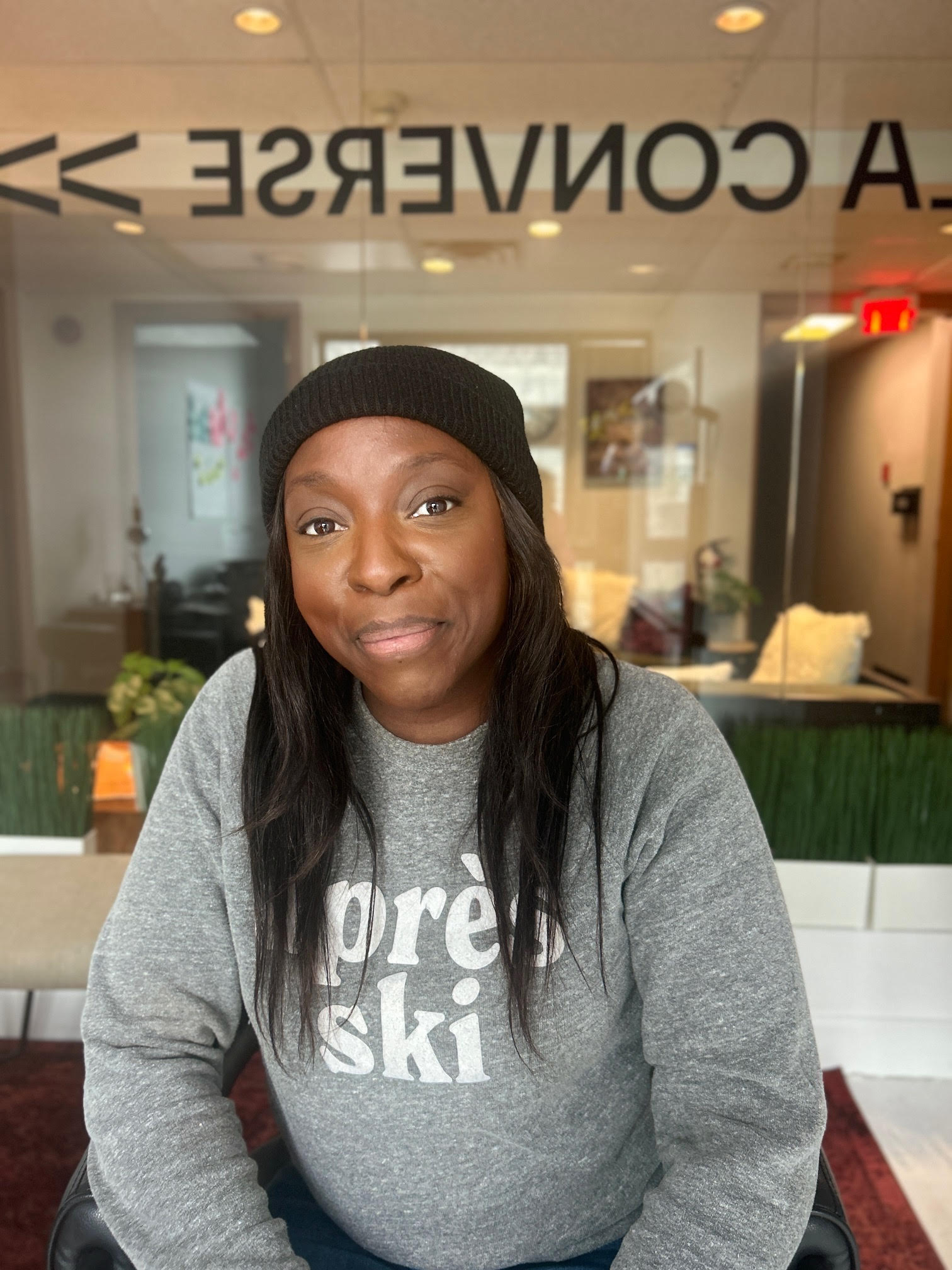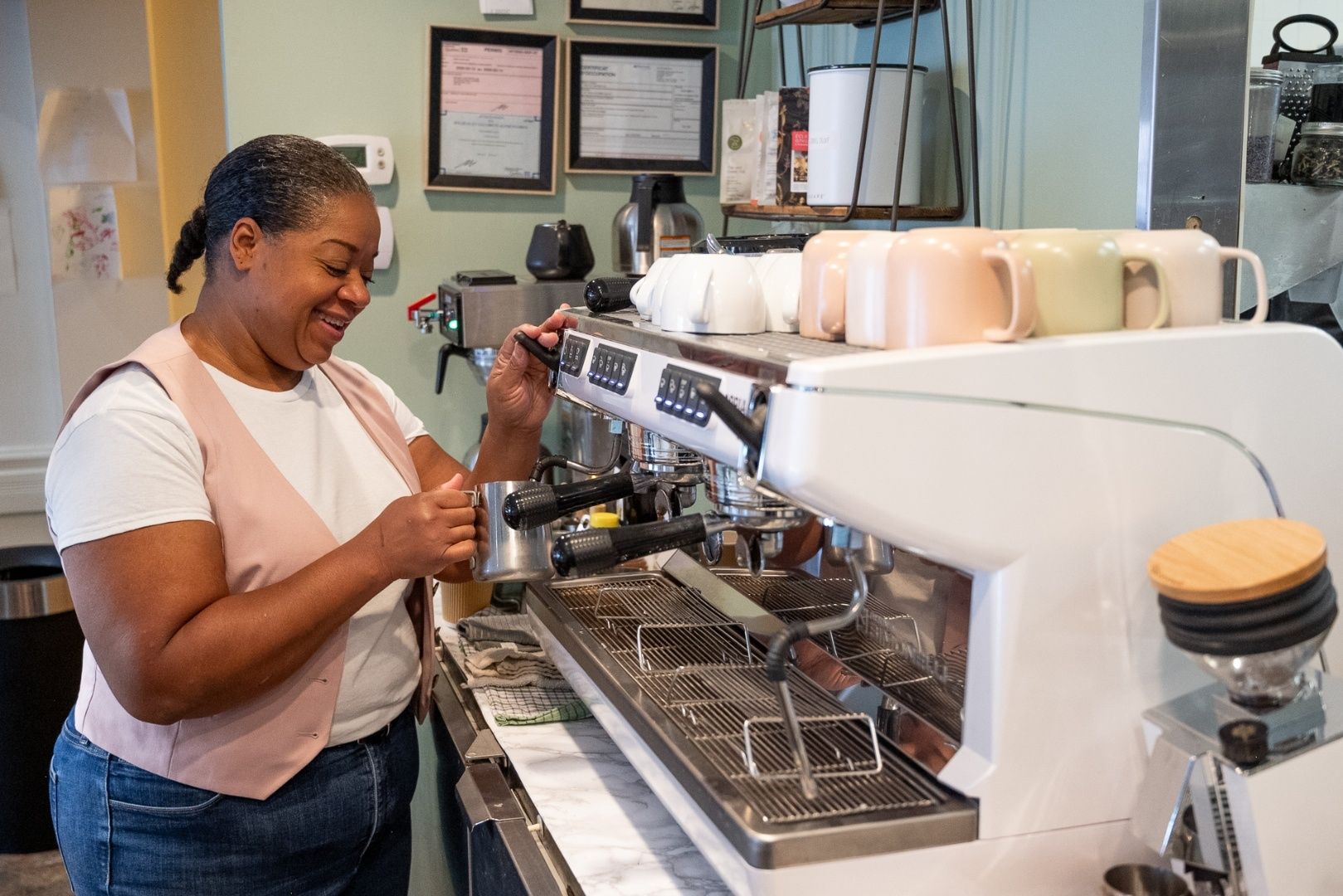"Men don’t cry." It’s a simple phrase on the surface, but it carries the weight of a society that imposes expectations about what a man should be. In Black communities, mental health remains a taboo subject—trapped under the weight of toxic masculinity, stereotypes, and a legacy of silence and resilience passed down from generation to generation. However, cracks are beginning to show. Spaces for open dialogue are starting to emerge, offering Black men a chance to break their silence—and the mold.
One rainy evening in late March, in Blainville, around 50 people gathered in a softly lit room at the Grand Hotel Times to tackle a topic that rarely gets center stage: men’s mental health.
They came from all walks of life—young and older, immigrants and second-generation Canadians, professionals, students, fathers. Some came to listen, a few to speak, all to better understand the invisible weight they carry and the persistent inner voice that says: "This isn’t for me."
On stage, the finishing touches were being made for the recording of an episode of the podcast État d’homme, hosted by Youvey Jean, a speaker and advocate for men’s wellness. Right from the start, he highlighted a statistic that often goes overlooked. "Three out of every four people who die by suicide in Canada are men."
It’s a sobering figure from the Institut national de santé publique du Québec (INSPQ), published in 2022, that sets the tone for the evening. According to the INSPQ, the suicide rate among men is three times higher than among women, and nearly one in ten men experiences significant psychological distress.
With numbers like these, it becomes clear that Black men’s mental health issues can no longer be ignored.
Toxic masculinity: A barrier to well-being
Youvey Jean, 41, was joined on stage by Frantz-Daniel, a 38-year-old social worker, and Jayden, an 18-year-old comedian and actor.
"I’m in CÉGEP. And in CÉGEP, mental health isn’t really a thing. It’s just… mental. That’s it." Laughter rippled through the room, granting the audience a moment of levity that lightened the atmosphere without shying away from the weight of what was to be discussed.
The three men launched into a conversation about how toxic masculinity undermines men’s mental health. The social pressure to project invincibility doesn’t stop at the surface. It also reaches into romantic, familial, and platonic relationships. “You’re expected to be stoic, to be like Superman in every situation,” said Jean. “But how does that actually play out in our relationships?”
For Frantz-Daniel, the “strong man” stereotype used to hold him back. “It affected me,” he admitted. “I actually believe that a man who cries, who shows vulnerability—that’s a real strength.
He credited his support network for helping him open up: “There are key people in my life I can turn to for advice and perspective. That’s why choosing your circle is so important.”
Jean, however, had a different experience growing up.
"You can’t talk to your friends because they’ll tease you. You can’t talk to your family because they’ll think you’re crazy. And you avoid talking to women because you’re afraid they’ll see you as too emotional, too weak," he said.
Before he could accept help, he had to unlearn the messages he’d internalized since childhood. "When a little girl falls, we comfort her. A little boy? We tell him to get up, not to cry. We push boys to be tough, too soon.
As an adult, those lessons become harmful. "You don’t cry over a breakup. You don’t cry over losing a job. You swallow everything. And over time, you start to think that you’re the problem. That you’re not good enough. That you’re useless."
His imposing frame—6’5” and 285 pounds—only worsened the pressure to maintain a strong front. “I thought a big guy like me wasn’t allowed to be emotional. It was a real mental block,” he admitted.
.jpg)
"Every failure you experience, you go through it in silence. And that can hurt like hell." He confided, quietly, that this inability to open up can push someone toward suicidal thoughts. “You don’t talk about it, and then you start thinking: maybe I’d be better off gone.”
His words were raw, intimate, and they echoed throughout the room.
Jean continued on with a thoughtful statement. "When your body’s sick, you go see a doctor. Why not do the same when your mind’s unwell?"
That question opened the floor to a deeper conversation: one about recognizing mental health as a public health issue, just like any other.
A story of resilience
As the microphones turned off and the podcast recording wrapped, the room buzzed with conversation. People made their way to the buffet, swallowing down food and the emotional weight of the evening.
Among them was Manuela Théodore Rigaud, one of the few women present, and a university lecturer. While the panelists emphasized the need to deconstruct masculinity, Rigaud made a different point: the vision of mental health itself needs redefining in Black communities.
When asked if enough is being done for Black men when it comes to mental health, Rigaud’s answer was candid. "I don’t think the question is, “are we doing enough?” Rather, it’s “are we doing it well enough for them to see that the message is meant for them too?"
For her, it’s not enough to simply talk about mental health with Black men. The codes need to be rewritten. That inherited version of masculinity needs dismantling. Invisible chains—cultural, religious, historical—must be broken.
"Some people believe that mental health is for certain cultures, or White people, and not for people of color," she noted.
As a psychoeducator and co-creator of the podcast “Afro-descendants: Let’s Demystify Our Well-being”, Rigaud noted how Black communities often overvalue resilience—a legacy of colonial history, where Black men were reduced to their physical strength.
"Our history has made it feel like struggling mentally is incompatible with our identity," she said. "There are people who think it’s impossible. If your basic needs are met, you don’t have the right to ask yourself if you're really okay or not—because we were taught to survive. And that’s the Black reality."
While moving forward becomes second nature, the statistics tell a different story. A 2021 Mental Health Commission of Canada survey of 328 Black Canadians revealed that 35 per cent of them experienced significant psychological distress.
And in 2023, 63 per cent of Black Canadians rated their own mental health as “excellent” or “very good”—a rate higher than the national average. The contradiction is stark. Does this reflect actual well-being, or a deeper difficulty in recognizing and naming emotional distress?
A “White people’s disease” and the fear of being called “crazy”
According to Rigaud, the fear of being labeled as “crazy” or “mentally ill” stops many men from seeking help.
Jennifer A. Burnham, one of the event organizers, knows that struggle well. She spoke of the difficulty in getting men to even attend. “They’d tell me: ‘This isn’t for me. I’m not crazy.’”
For Youvey Jean, religion also played a role in the distance between mental health and his community. "I grew up in a deeply religious family, and they’d say mental health was either a White people’s problem, or the work of evil spirits," he recalled. That internal conflict paralyzed him for years. "For me, mental health was a right I didn’t have the right to claim."
Melchi, born in the 1980s to a Haitian family, recognized that narrative too. "Whatever happens, God will save you. That’s a mentality we’ve held onto," he said. For a long time, mental health felt completely foreign to him. “You’re not allowed to cry. Not allowed to show weakness.”
Now, with hindsight, he understands: "I went through some very dark times, and I realized mental health matters." But how many others reach that same realization?
Evans, seated next to Melchi, nodded in agreement. That night’s event, he said, was like a breath of fresh air. "In our community, it’s still taboo. As a man, you’re expected to be strong," he sighed. “Someone who grows up with that mindset isn’t likely to seek help. They’ll try to cope in other ways—sometimes harmful ones.”
Drugs, alcohol, isolation were all avenues to attempt to conceal mental distress.
Building safe spaces
Today, Jean wants to break the cycle of silence. His podcast, État d’homme, was born out of a sense of urgency.
"I’m not an expert," he said. "I’m just someone who’s been through mental health struggles and wants to offer others an anchor point. The goal is to show men that mental health can be a tool."
The podcast is for people of all backgrounds and generations, no matter where they live. Its reach now extends beyond borders—Jean has listeners as far away as Côte d’Ivoire.
The project also serves as a compass for his own healing. “It keeps me working on myself. I discover things while doing research. And you never stop growing. It’s how I maintain my mental health.”
He’s now considering launching a monthly men’s discussion circle, an idea he’s already testing informally with friends, in safe spaces.
"We need to let go of machismo and toxic masculinity. You can be strong, and still be vulnerable, emotional, and know when to seek help."
In Montreal, others are pursuing similar goals. The Black Healing Center—created by and for Black people—runs wellness events specifically designed for men, often hosted in familiar settings like barber shops.
"A lot of men showed up," said founder and executive director Samantha Nyinawumuntu. "They’re open to talking—but we need to create spaces that speak to them. And ideally, those spaces should be created and led by Black men, for Black men."
Dismantling structural barriers
According to Jean, this is only the beginning of a broader movement. "There’s still a lot of work to do—in our communities, and within the organizations and institutions meant to support us."
In 2024, Canada allocated $4 million over two years to the Black Community Mental Health Fund, aimed at scaling grassroots, culturally adapted solutions. But despite these efforts, for many Black men, turning to a mental health professional is still far from instinctive.
Even as mental health research expands, data focused specifically on Black men remains scarce. Yet the evidence is there: according to the Government of Canada, anti-Black racism directly contributes to depressive symptoms, impacting the daily mental health of those exposed to stress, precarity, and discrimination.
Sophie Annabelle Barateau, a Haitian-Canadian clinical psychologist who works from an anti-racist lens, warns that failing to address racial dynamics in treatment can lead to disparities in care.
"Some Black patients receive different treatment simply because they’re Black," she stated.
That’s why, she argued, health professionals must be trained to practice anti-racism. She speaks regularly at conferences to raise awareness among colleagues on how to care for racialized patients. One of the most powerful tools, she added, is the sharing of positive, collective experiences.
Still, beyond cultural taboos, real obstacles remain: long wait times, high costs, and a lack of Black representation in healthcare.
Melchi believes the root of the disconnect lies in a lack of information. That’s why, to him, events like the one he attended that night are essential. “We’re finally at that point. This needs to happen more often," he insisted.




%20(1).jpg)
.jpg)


%20(1).jpg)
%20(2).jpg)
.png)